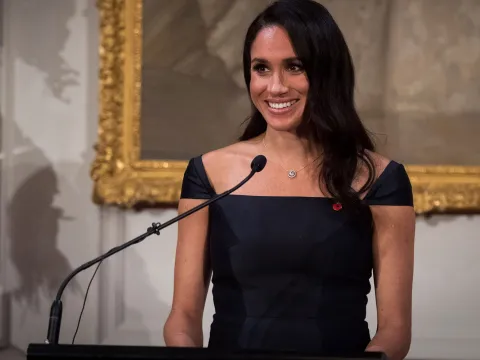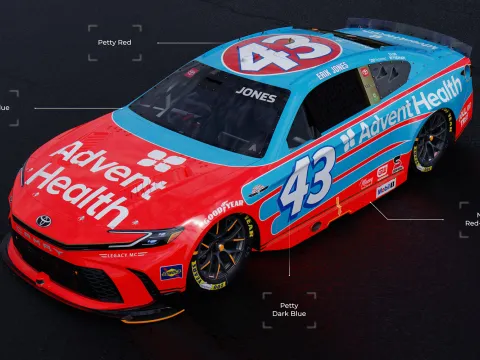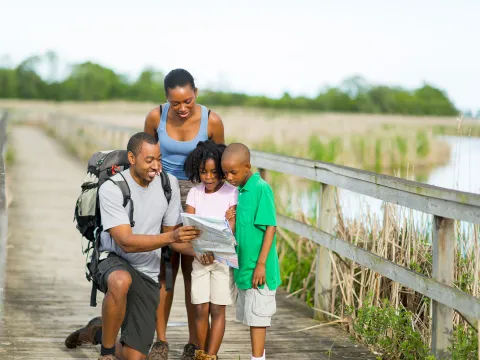- AdventHealth

Meghan Markle, the Duchess of Sussex, revealed her past miscarriage in a New York Times op-ed on November 25. In the heartfelt piece, she reflects on the loneliness, division and loss that have weighed heavily on us all in 2020 — especially those who don’t feel they can share their own stories of grief.
“In the pain of our loss, my husband and I discovered that in a room of 100 women, 10 to 20 of them will have suffered from miscarriage,” she writes. “Yet despite the staggering commonality of this pain, the conversation remains taboo, riddled with (unwarranted) shame, and perpetuating a cycle of solitary mourning.”
Loss of a baby may be one of the most overwhelming and devastating things you ever experience. But know that you don’t have to endure it alone. When you’re ready, there’s a caring community prepared to support you with open arms and understanding hearts.
A Shared Heartbreak
Regardless of age, stage or number of weeks, the pain of loss is devastating and real. There are many reasons a pregnancy ends, and nearly all of them are out of an expectant mother’s control.
A miscarriage is usually defined as the loss of a baby before the 20th week of pregnancy, and stillbirth is the loss of a baby at 20 weeks of pregnancy or later. According to the CDC, each year about 24,000 babies are stillborn in the U.S.
Most women who miscarry or experience infant loss go on to have a healthy pregnancy later. But it’s important to give yourself the time, space and grace you need to physically, mentally and emotionally recover. One way to do so is to seek advice and support from parents who have been there.
When a loss is new, connecting with others may be the last thing on your mind. But many parents discover that a shared burden is a lighter one — and one that so many others have carried.
Connection Helps Heal
After a miscarriage, many women suddenly hear stories from friends and relatives of their own losses. In reality, this very common shared experience is rarely discussed. There has long been a stigma or sense of shame associated with the loss of a baby that is undeserved. The term “miscarriage” itself implies that an expectant mom made a mistake — which is hurtful, untrue and unfair.
Pain and grief can cause us to turn inward, but bringing feelings into the light can be critical to the coping and healing process.
If you know someone who’s struggling through a time of grief, you might feel helpless, but your loving and patient presence can mean a lot. Some of the best ways to support someone who’s experienced the loss of a baby include:
- Checking in over time, beyond the first weeks
- Genuine empathy for the family
- Open, judgment-free listening
- Respect for the grief process
- Sharing of your own story
- Validation of the loss and the feelings it causes
"Let us commit to asking others, 'Are you OK?'" Markle wrote. “In being invited to share our pain, together we take the first steps toward healing.”
Resources and Support
After you experience a loss, avoiding isolation, hearing the stories of others and sharing your own story can be powerful and provide much-needed hope. There are many options — from books, to counselors, to support groups — when you’re ready for them.
The March of Dimes offers a free booklet on coping with miscarriage, stillbirth or the death of a baby at or after birth.
The MISS Foundation is an international 501(c)(3) volunteer-based organization providing C.A.R.E. (counseling, advocacy, research and education) services to families experiencing the death of a child.
The Star Legacy Foundation is a 501(c)(3) non-profit organization dedicated to reducing pregnancy loss and neonatal death and improving care for families who experience such tragedies.
Share Pregnancy & Infant Loss Support is a community for anyone who experiences the tragic death of a baby, including parents, grandparents, siblings and others.
The Compassionate Friends provides personal comfort, hope and support to those experiencing the death of a son or a daughter, a brother, a sister or a grandchild, and helps others better assist the grieving family.
Centering is a 501(c)(3) non-profit organization dedicated to providing education and resources for the bereaved, with over 500 resources for children and adults.
Whole-person health care is available to you through every stage of life. When you need a compassionate women’s care team, we will be here for you in body, mind and spirit.


